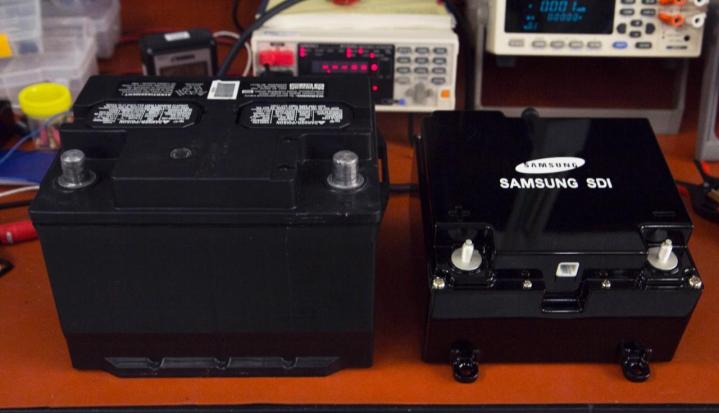
The lead-acid car battery was invented in 1859 by French physicist Gaston Planté, and if you pop open the hood of your car right now, you’ll probably see something very similar to his first prototype. For all the advancements cars have made over the years, its batteries have remained eerily unchanged.
This Tuesday, Ford and technology mogul Samsung announced a dual-battery system for gas-powered vehicles that could be the beginning of the end for the lead-acid battery.
Ford and Samsung have combined a lithium-ion battery with a 12-volt lead-acid unit, creating a new, lighter, and more flexible power source. The new concept has massive potential for fuel savings, as the lithium-ion component can be recharged through regenerative braking.
Regenerative braking, which has only been available on hybrid and electric vehicles thus far, recovers kinetic energy from the brakes and uses it to charge a vehicle’s batteries. Since this energy is normally converted into waste heat and friction, implementing this process on non-hybrid vehicles seems like a no-brainer.
Ford isn’t stopping with new battery technology, though. Other fuel-saving technologies like Auto Start-Stop, which shuts off a car’s engine at stoplights, could ensure that Ford’s gas-powered vehicles of the future may be just as fuel-efficient as the hybrids of today.
“We are currently expanding our Auto Start-Stop technology across 70 percent of our lineup, and this dual-battery system has the potential to bring even more levels of hybridization to our vehicles for greater energy savings across the board,” explains Ted Miller, senior manager of Energy Storage Strategy and Research at Ford. “Although still in research, this type of battery could provide a near-term solution for greater reduction of carbon dioxide.”
Given that lithium batteries are lighter, more compact, and have more recharging options than their lead-acid counterparts, it’s hard to see why that bulky, toxic unit under your hood won’t be going to way of the dinosaurs pretty soon.
Ford and Samsung say that they’ll continue their partnership to develop more advanced lithium-ion units in the future, which could potentially make the traditional lead-acid battery obsolete.
No offense to Gaston Planté, but it’s about time.


